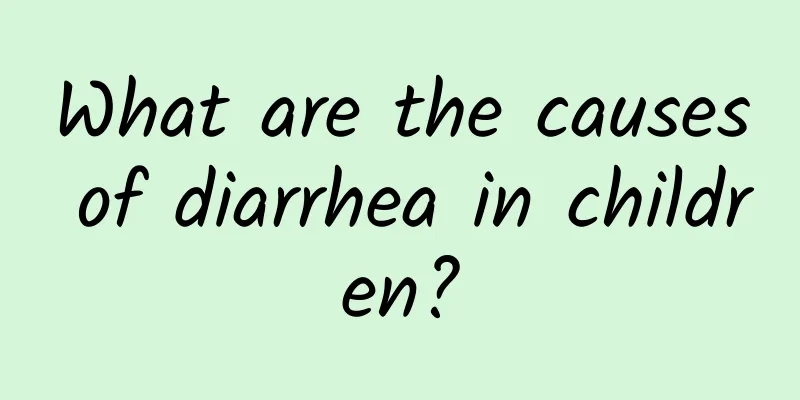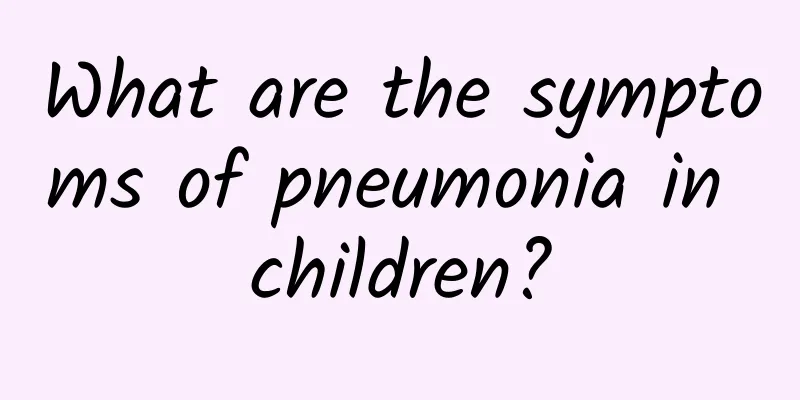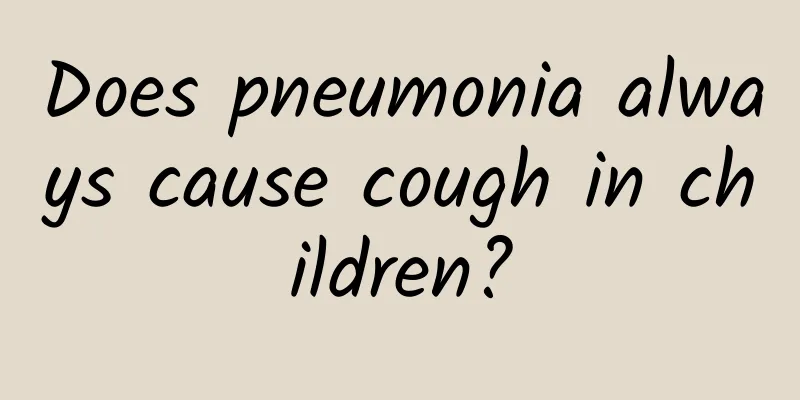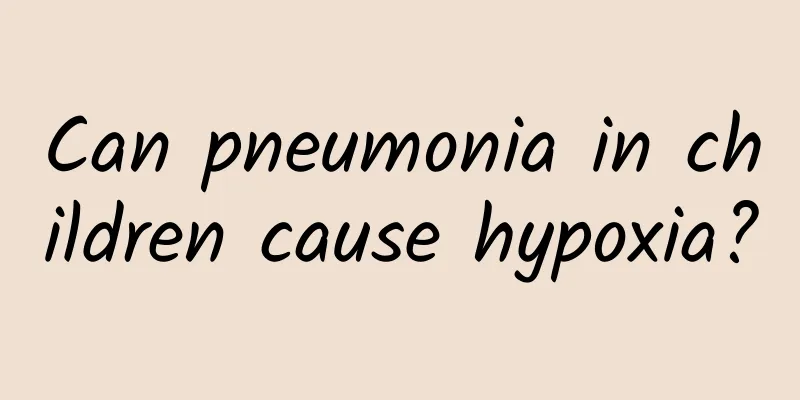What are the causes of diarrhea in children?

|
Pediatric diarrhea is a common disease in infants. Our understanding is that if the baby is exclusively breastfed and the mother's diet is too greasy, it will cause diarrhea in the baby. If the baby is fed with milk powder and eats too much, it will cause indigestion in the child and also cause diarrhea in the baby. So what are the common causes of diarrhea in the baby in clinical practice? 1. Physical factors This disease mainly occurs in infants and young children, and its internal characteristics are: (1) The gastrointestinal tract of infants is not fully developed and the enzyme activity is low, but their nutritional needs are relatively high, and the gastrointestinal tract is burdened. (2) During infancy, the nervous, endocrine, circulatory systems, liver, and kidney functions are immature and their regulatory functions are poor. (3) Infants’ immune function is also imperfect. The serum E. coli antibody titer is lowest from birth to 2 years old, and then gradually increases. Therefore, infants and young children are prone to E. coli enteritis. The E. coli antibody titer in breast milk is high, especially the secretory IgA of pathogenic E. coli in colostrum, so breastfed children are less likely to get sick and the disease is milder. Similarly, infants have low rotavirus antibodies, so when the same population is infected, infants are more likely to get sick. (4) The distribution of body fluids in infants is different from that in adults. Extracellular fluid accounts for a higher proportion, and water metabolism is vigorous, with poor regulatory function, which makes it easier for body fluid and electrolyte disorders to occur. Infants are prone to rickets and malnutrition, which can easily lead to digestive disorders. At this time, intestinal secretory IgA is insufficient, and diarrhea is prone to prolonged. 2. Infectious factors It is divided into intra-digestive tract infection and extra-digestive tract infection, with the former being the main type. (1) Infection in the digestive tract Pathogenic microorganisms can enter the digestive tract of children with contaminated food or water, and thus are prone to occur in artificially fed children. If the utensils or food used for feeding are not sterilized or are not sterilized enough, there is also the possibility of infection. Viruses can also be transmitted through the respiratory tract or water sources. The second is transmission by adult carriers of bacteria (viruses). For example, after an outbreak of bacterial (or viral) enteritis in a ward, some medical staff are infected and become asymptomatic intestinal carriers of bacteria (viruses), which can lead to the spread of pathogens. (2) Extra-digestive tract infection Infection of organs and tissues outside the digestive tract can also cause diarrhea, which is common in otitis media, pharyngitis, pneumonia, urinary tract infection and skin infection. Diarrhea is usually not serious and is more common in younger people. The cause of diarrhea is partly due to extra-intestinal infection causing digestive dysfunction, and partly due to the same pathogen (mainly virus) inside and outside the intestine. (3) Intestinal flora disturbance caused by the abuse of antibiotics. Long-term and large-scale use of broad-spectrum antibiotics, such as chloramphenicol, kanamycin, gentamicin, ampicillin, and various cephalosporins, especially when two or more are used together, can directly stimulate the intestines or stimulate the autonomic nerves to cause increased intestinal motility, reduced glucose absorption, and reduced disaccharidase activity, resulting in diarrhea. More seriously, it can cause intestinal flora disturbance. At this time, normal intestinal Escherichia coli disappears or significantly decreases, and drug-resistant Staphylococcus aureus, Proteus, Pseudomonas aeruginosa, Clostridium difficile, or Candida albicans can multiply in large numbers, causing enteritis that is difficult to control with drugs. 3. Digestive dysfunction (1)Dietary factors. (2) Intolerance to carbohydrates. (3)Food allergy. (4)Drug effects. (5) Other factors: unclean environment, too little outdoor activities, sudden changes in daily life patterns, and sudden changes in external climate (known as "wind, cold, heat, and dampness diarrhea" in traditional Chinese medicine) can also easily cause diarrhea in infants. The above is the cause of pediatric diarrhea, which I hope will attract the attention of parents. Pediatric diarrhea will cause the child's physical weakness. If it continues for a long time, it will cause intestinal disorder and cause more diseases. Therefore, during the feeding process, you should pay more attention to the child's condition and do not blindly feed the child this or that. The child is too young and cannot eat too much. You must strictly follow the pediatric feeding method. |
<<: What causes diarrhea in children?
>>: Typical symptoms of diarrhea in children
Recommend
How much does it cost to treat diarrhea in children?
Autumn and winter are the peak seasons for diarrh...
How to intervene in childhood malnutrition How to treat childhood malnutrition
Most cases of malnutrition in children are caused...
What to eat for a baby's cough? Teach you 4 dietary methods to treat your baby's cough
After the baby has a cough, he can eat pears stew...
How to treat eczema in children? There are 3 treatment methods
Children with eczema need to choose medication fo...
How to treat mumps quickly
For the treatment of mumps, patients should not o...
What is the high level of jaundice in newborns?
What about high levels of jaundice in newborns? G...
How to treat myocarditis caused by cold in children
Children with myocarditis caused by a cold need t...
TCM treatment of nephrotic syndrome in children
As we all know, modern medicine is an era of pros...
Is acute mumps in children contagious?
Acute mumps in children is contagious. In particu...
What are the causes of pneumonia in children? How to distinguish pneumonia from cold in children?
Pediatric pneumonia is a common clinical disease ...
How to treat mycoplasma pneumonia in children
Children with Mycoplasma pneumonia infection gene...
What causes body coldness?
Feeling cold may be the result of many factors. W...
What to do if your one-year-old baby has a respiratory infection and coughs
A one-year-old baby's respiratory tract infec...
Differences between Hepatitis A and Icteric Hepatitis
What is the difference between hepatitis A and ic...
Mild polio is similar to normal people
The daily life of patients with mild polio may be...









